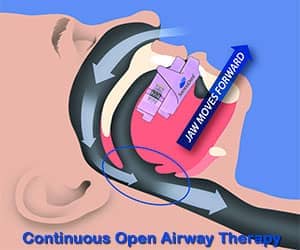Mechanism of action of continuous positive airway pressure therapy iv
Table of Contents
Table of Contents
Are you one of the many people who struggle with sleep apnea and wonder if exercise can help? Do you worry that exercise might aggravate your condition, or perhaps you are hesitant to exercise due to your sleep apnea? In this article, we’ll explore the benefits of Continuous positive airway pressure therapy (CPAP) and exercise recommendations for sleep apnea sufferers. Discover ways to feel better, improve your health, and manage sleep apnea to help you get a good night’s rest.
Sleep Apnea’s Impact on Daily Life
Sleep apnea negatively affects your mood, thinking, and ability to perform everyday tasks. Common symptoms include excessive daytime sleepiness, fatigue, difficulty concentrating, and mood disorders. Sleep apnea also increases your risk for developing high blood pressure, heart disease, stroke, and diabetes.
CPAP and Exercise Recommendations
Continuous positive airway pressure (CPAP) is the most effective treatment for sleep apnea. CPAP works by applying air pressure through a mask to keep your airway open while you sleep. Exercise recommendations for sleep apnea sufferers are an essential part of managing the condition. Exercise can help to improve breathing and overall fitness levels. Moderate exercise, such as walking, cycling, and swimming, performed consistently several times per week, can help you improve your sleep quality and manage sleep apnea symptoms.
Other good exercise recommendations include yoga and stretching exercises, which improve flexibility and strengthen muscles used during breathing. Stronger muscles and increased endurance can also prevent you from feeling out of breath or fatigued during the daytime due to sleep apnea symptoms.
The Benefits of CPAP and Exercise Recommendations
Many people who use CPAP for sleep apnea also see a significant improvement in overall health and well-being when they continue with an exercise regimen recommended by their healthcare provider. Exercise can help lower blood pressure and reduce the risk of developing other health problems like heart disease, type 2 diabetes, and stroke. Regular physical activity also helps to reduce and manage stress levels that can affect sleep quality and lead to sleep apnea.
If you want to benefit from exercise but struggle to find activities that work for you, it’s important to know that exercise can be customized for your preferences and abilities. Consult with a healthcare professional or professional exercise coach to create a personalized exercise plan that works for you.
Your Personal Experience with CPAP and Exercise Recommendations
Everyone has a different experience when it comes to CPAP and exercise recommendations for sleep apnea. Some find exercise to be an excellent way to manage their sleep apnea symptoms and improve their overall health, while others find the exercises to be challenging to complete consistently. Regardless of your experience, it’s important to stay motivated and find what works for you.
You may benefit from finding an exercise buddy to help you stay accountable or using a fitness tracker to monitor your progress.
Sleep Apnea and Weight Loss
If you are overweight, losing weight can help to improve your sleep apnea symptoms and overall health. Exercise and a healthy diet can lead to sustained weight loss, which can also help you to sleep better and reduce snoring. Reducing alcohol and smoking are two lifestyle changes that can also help to improve sleep apnea symptoms and overall health.
Question and Answer
Q: Can exercise cause sleep apnea to worsen?
A: Exercise does not cause sleep apnea to worsen, and it can be beneficial to individuals with moderate to severe sleep apnea. However, some people with severe sleep apnea may find it challenging to exercise due to fatigue or low energy levels. Always consult with your healthcare provider before beginning any exercise regimen.
Q: How many times a week should I exercise to manage sleep apnea?
A: Moderate exercise performed consistently several times per week is recommended to manage sleep apnea. Consult with your healthcare provider to create an exercise regimen that works best for you.
Q: Will using CPAP and exercising help me lose weight?
A: Although CPAP and exercise recommendations can help to improve your overall health, weight loss requires a sustained effort that involves a healthy diet and a regular exercise routine.
Q: Can breathing exercises help manage sleep apnea?
A: Breathing exercises can help to improve your overall breathing and can manage some sleep apnea symptoms. You can consult with a healthcare provider or breathing specialist to learn specific exercises targeted at sleep apnea management.
Conclusion of Continuous Positive Airway Pressure Therapy and Exercise Recommendations
Continuous positive airway pressure therapy and exercise recommendations can help manage sleep apnea symptoms, improve breathing, and overall health. Committing to a healthy lifestyle that involves regular exercise and a healthy diet can have many benefits, including better sleep, a healthier weight, and lower rates of chronic health problems. Speak with a healthcare provider to learn more about the CPAP and exercise recommendations that will work for you.
Gallery
Continuous Positive Airway Pressure Therapy | Nursing Information

Photo Credit by: bing.com / pressure continuous positive airway therapy
Mechanism Of Action Of Continuous Positive Airway Pressure Therapy IV

Photo Credit by: bing.com / airway pressure positive continuous therapy iv
Continuous Positive Airway Pressure [37]. (Internet, Google Images
![Continuous positive airway pressure [37]. (Internet, Google images Continuous positive airway pressure [37]. (Internet, Google images](https://www.researchgate.net/profile/Mohammed_Jaradat4/publication/281926605/figure/fig2/AS:668370873643016@1536363442451/Continuous-positive-airway-pressure-37-Internet-Google-images-CPAP-first-page-PAP.png)
Photo Credit by: bing.com / airway continuous cpap pap
Continuous Positive Airway Pressure (CPAP) Devices Market

Photo Credit by: bing.com / pressure positive airway continuous cpap devices types market machine breathing bipap different insights premium press release
Continuous Positive Airway Pressure (CPAP) -Therapie

Photo Credit by: bing.com / cpap apnea airway nasal sleepers suffering bipap snoring therapie hable dificultades prism somsak eyeem using copd galeon fitnesslifestylehealthclub




